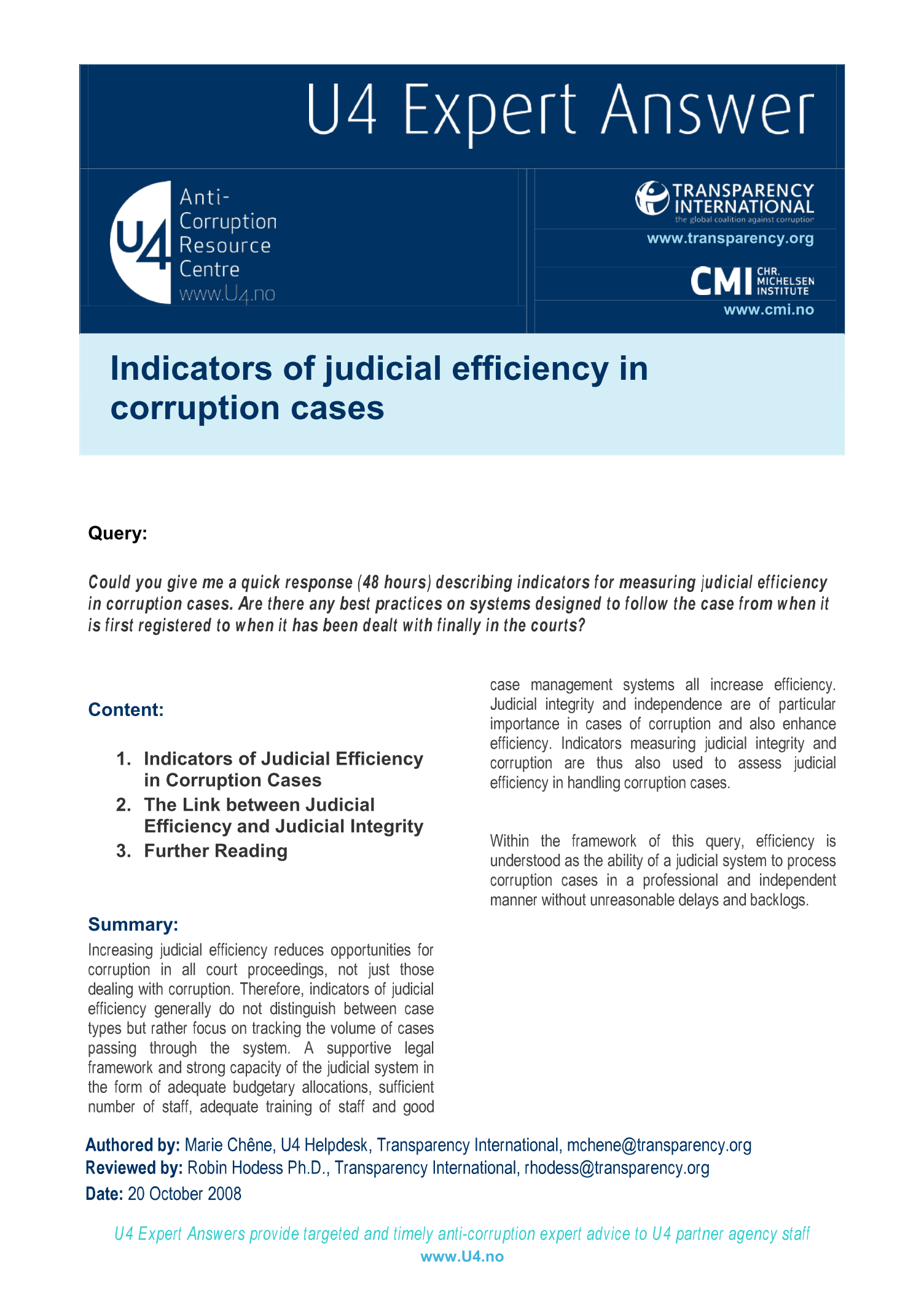U4 Helpdesk Answer
Indicators of judicial efficiency in corruption cases
Increasing judicial efficiency reduces opportunities for corruption in all court proceedings, not just those dealing with corruption. Therefore, indicators of judicial efficiency generally do not distinguish between case types but rather focus on tracking the volume of cases passing through the system. A supportive legal framework and strong capacity of the judicial system in the form of adequate budgetary allocations, sufficient number of staff, adequate training of staff and good case management systems all increase efficiency. Judicial integrity and independence are of particular importance in cases of corruption and also enhance efficiency. Indicators measuring judicial integrity and corruption are thus also used to assess judicial efficiency in handling corruption cases. Within the framework of this query, efficiency is understood as the ability of a judicial system to process corruption cases in a professional and independent manner without unreasonable delays and backlogs.

Cite this publication
Chêne, M. 2008. Indicators of judicial efficiency in corruption cases . Bergen: U4 Anti-Corruption Resource Centre, Chr. Michelsen Institute (U4 Helpdesk Answer Helpdesk)
Disclaimer
All views in this text are the author(s)’, and may differ from the U4 partner agencies’ policies.
This work is licenced under a Creative Commons Attribution-NonCommercial-NoDerivatives 4.0 International licence (CC BY-NC-ND 4.0)